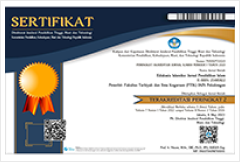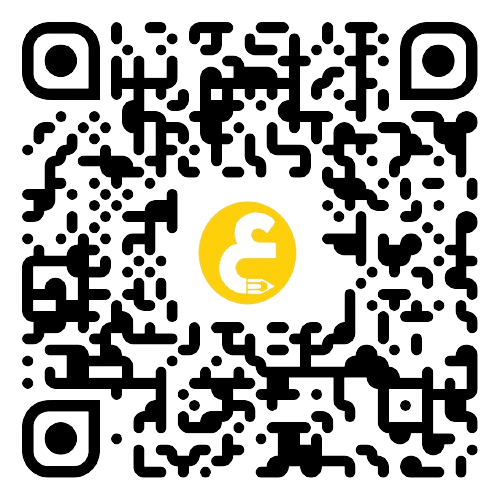Kiai’s Situational and Transformative Leadership: Maintaining The Quality of Pesantren Graduates in The Disruption Era
DOI:
https://doi.org/10.28918/jei.v8i2.2276Keywords:
Situational Leadership, Transformative Leadership, Kiai, Pesantren, Quality of GraduatesAbstract
The enduring presence of Islamic boarding schools (pesantren) as vital Islamic educational institutions across dynamic epochs is a testament to their adaptability. This study unravels the strategies employed by pesantren to maintain the quality of their graduates in the face of contemporary challenges. Specifically, it investigates the role of Kiai leadership styles (situational and transformative) in fostering robust graduates, alongside exploring how pesantren educational management adapts to the age of disruption driven by technological advancements. Employing a multi-site approach, the study examines two pesantrens in Central Java that have modernized their educational systems to navigate the disruptive era. Data collection involves in-depth interviews, observations, and document analysis. Following Milles and Hubberman's framework, data undergoes reduction, display, verification, and subsequent conclusion drawing. The findings disclose significant similarities in Kiai leadership styles between Pondok Pesantren Al-Istiqomah Batang and Pondok Pesantren Walindo Pekalongan. Both Kiais exhibit adeptness in reading situational dynamics and choosing effective leadership approaches, a crucial quality in a disruptive era. The study also identifies nuanced differences in their educational management systems. Pondok Pesantren Walindo integrates formal education with madrasah diniyah (Islamic religious education), whereas Pondok Pesantren Al-Istiqomah maintains a separate system. These variations present distinct strengths and weaknesses, impacting each pesantren's capacity to nurture high-caliber graduates. This research contributes to understanding the dynamic landscapes of pesantren education in the face of disruption, highlighting the role of adaptable leadership and educational management in ensuring robust academic outcomes.
References
Alim, N., & Syahrul, S. (2021). Strategi Membangun Keunggulan di Era Disrupsi: Kajian di Pondok Pesantren Annur Azzubaidi, Konawe, Sulawesi Tenggara. Al-Izzah: Jurnal Hasil-Hasil Penelitian. https://doi.org/10.31332/ai.v0i0.3175
Andani, N. W. R., & Wibawa, I. M. A. (2022). PENGARUH KEPEMIMPINAN INKLUSIF TERHADAP PERILAKU INOVATIF KARYAWAN DIMEDIASI OLEH PERCEIVED ORGANIZATIONAL SUPPORT. E-Jurnal Manajemen Universitas Udayana, 11(2), 210. https://doi.org/10.24843/EJMUNUD.2022.v11.i02.p01
Athoillah, M. A., & Wulan, R. W. (2019). Transformasi Model Pendidikan Pondok Pesantren di Era Revolusi Industri 4.0. Prosiding Nasional.
Bogdan, R., & Biklen, S. K. (2003). Qualitative research for education : an introduction to theory and methods / by Robert C. Bogdan and Sari Knopp Biklen. In Qualitative Research for Education: An introduction to Theories and Methods.
Budiwibowo, S. (2016). PENGARUH GAYA KEPEMIMPINAN TRANSAKSIONAL, TRANSFORMASIONAL DAN DISIPLIN KERJA TERHADAP KINERJA GURU (KARYAWAN) DI KOTA MADIUN. Premiere Educandum : Jurnal Pendidikan Dasar Dan Pembelajaran, 4(02). https://doi.org/10.25273/PE.V4I02.312
Chandra, P. (2020). Peran Pondok Pesantren dalam Membentuk Karakter Bangsa Santri di Era Disrupsi. Belajea; Jurnal Pendidikan Islam. https://doi.org/10.29240/belajea.v5i2.1497
Dwapatesty, E., Gistituati, N., & Rusdinal, R. (2021). Hubungan Gaya Kepemimpinan Karismatik terhadap Motivasi Kerja Guru. EDUKATIF : JURNAL ILMU PENDIDIKAN, 3(5), 3000–3006. https://doi.org/10.31004/EDUKATIF.V3I5.1001
Fadli, M. R. (2021). Memahami desain metode penelitian kualitatif. HUMANIKA. https://doi.org/10.21831/hum.v21i1.38075
Gamal Abdul Nasir Zakaria. (2010). Pondok Pesantren : Changes and Its Future. Journal of Islamaic and Arabic Education.
Gradini, E. (2019). MENILIK KONSEP KEMAMPUAN BERPIKIR TINGKAT TINGGI (HIGHER ORDER THINKING SKILLS) DALAM PEMBELAJARAN MATEMATIKA. Numeracy, 6(2), 189–203. https://doi.org/10.46244/NUMERACY.V6I2.475
Hasiara, L. O. (2018). Penelitian Multi Kasus Dan Multi Situs. In Cv Irdh.
Irhamni, F., Dwi Masita, E., Rizki, L. K., Denis, D., Karya, F., & Manajemen, D. (2022). Problem Solving: Cara Menumbuhkan Pemikiran Kritis pada Generasi Z di Pondok Pesantren Jagad ‘Alimussirry. Society : Jurnal Pengabdian Dan Pemberdayaan Masyarakat, 3(1), 67–76. https://doi.org/10.37802/SOCIETY.V3I1.240
Laliasa, G., Nur, M., Tambunan, R., Stie, E.-E., & Kendari, I. (2018). Pengaruh Gaya Kepemimpinan Demokratis, Lingkungan Kerja dan Motivasi Kerja Terhadap Kinerja Pegawai Dinas Perkebunan dan Hortikultura Provinsi Sulawesi Tenggara. SIGMA: Journal of Economic and Business, 1(1), 42–52. https://www.journal.stie-66.ac.id/index.php/sigmajeb/article/view/29
Lee, D., Huh, Y., & Reigeluth, C. M. (2015). Collaboration, intragroup conflict, and social skills in project-based learning. Instructional Science. https://doi.org/10.1007/s11251-015-9348-7
MASTURAINI, Y. (2022). Penanaman Nilai-Nilai Moderasi Beragama Di Pondok Pesantren (Studi Pondok Pesantren Shohifatusshofa Nw Rawamangun …. Tadarus Tarbawy.
Mattayang, B. (2019). TIPE DAN GAYA KEPEMIMPINAN: SUATU TINJAUAN TEORITIS. JEMMA (Journal of Economic, Management and Accounting), 2(2), 45–52. https://doi.org/10.35914/JEMMA.V2I2.247
Mufron, A. (2020). Transformasi Pondok Pesantren (Upaya Merawat Tradisi dan Modernisasi Sistem Pesantren di Era Disrupsi). Tarbawi Ngabar: Jurnal of Education. https://doi.org/10.55380/tarbawi.v1i02.55
Munawaroh, R., Marcela, S., Andriyani, R., Margarita, S., Putri Sundafa, S., & Maftuha, R. (2022). TEORI DAN FUNGSI KEPEMIMPINAN DALAM DUNIA PENDIDIKAN. Bunayya : Jurnal Pendidikan Anak, 8(1), 120–128. https://doi.org/10.22373/BUNAYYA.V8I1.12261
Nakano, T. de C., & Wechsler, S. M. (2018). Creativity and innovation: Skills for the 21st century. Estudos de Psicologia (Campinas). https://doi.org/10.1590/1982-02752018000300002
Piirto, J. (2011). Creativity for 21st Century Skills: How to Embed Creativity into the Curriculum. In Creativity for 21st Century Skills: How to Embed Creativity into the Curriculum.
Primasary, A., & Syamsudin, S. (2023). Kepemimpinan transformasional dan instruksional kepala sekolah untuk meningkatkan mutu lulusan (studi kasus di SMA Muhammadiyah 1 Yogyakarta). Indonesian Journal of Educational Management and Leadership, 1(2), 135–145. https://doi.org/10.51214/IJEMAL.V1I2.530
Purwaningrum, S. (2019). Santri Produktif: Optimalisasi Peran Santri di Era Disrupsi. Prosiding Nasional, 2, 101–116. http://prosiding.iainkediri.ac.id/index.php/pascasarjana/article/view/18
Purwanto, A. (2022). Konsep Dasar Penelitian Kualitatif Teori dan Contoh Praktis. In Pusat Pengembangan Pendidikan dan Penelitian Indonesia.
Ramadhany, A. (2019). Transformasi Pondok Pesantren Tebuireng di Era Disrupsi: Eksistensi Tradisi Pesantren Dalam Membangun Keilmuan Isolated Entities. In Jurnal UIN Sunan Kalijaga.
Samsudin. (2020). TANTANGAN LEMBAGA PENDIDIKAN PESANTREN DI ERA DISRUPSI. Conference on Islamic Studies FAI 2019, 0(0), 221–230. https://doi.org/10.30659/COIS.V0I0.8063
Shohib, M., & Mahsun, M. (2021). Konkretisasi Kultur Pesantren Madura Dalam Pembentukan Karakter Religius Era Disrupsi. NUANSA: Jurnal Penelitian Ilmu Sosial Dan Keagamaan Islam. https://doi.org/10.19105/nuansa.v18i1.4277
Sittika, Achmad Junaedi; Kejora, Muhamad Taufik Bintang; Syahid, A. (2021). Penyuluhan Pendidikan: Membangun Keterampilan Abad 21 Berbasis Al-Qur’an & Kearifan Lokal Bagi Santri I-Generation. Jurnal Pendidikan Tambusai, 5(3), 6709–6715. https://jptam.org/index.php/jptam/issue/view/20
Sulaiman, R. (2016). Pendidikan Pondok Pesantren: Institusionalisasi Kelembagaan Pendidikan Pesantren. ’Anil Islam.
Surawan, S., Anshari, R. M., Azmy, A., & Adi, Purnama, I. M. (2022). Finding Religious Moderation in Pondok Pesantren: Religious Moderation Education at Pondok Pesantren in Central Kalimantan. Nalar.
Syafe’i, I. (2017). PONDOK PESANTREN: Lembaga Pendidikan Pembentukan Karakter. Al-Tadzkiyyah: Jurnal Pendidikan Islam, 8(1), 61–82. http://www.ejournal.radenintan.ac.id/index.php/tadzkiyyah/article/view/2097
Syahril, S. (2019). TEORI-TEORI KEPEMIMPINAN Sulthon Syahril. RI’AYAH.
Tonich. (2021). The Role of Principals’ Leadership Abilities in Improving School Performance through the School Culture. Journal of Social Studies Education Research, 12(1), 47–75. https://www.jsser.org/index.php/jsser/article/view/3078
Wahyuni, E. (2015). Hubungan Self-Effecacy dan Keterampilan Komunikasi dengan Kecemasan Berbicara di Depan Umum. Jurnal Komunikasi Islam (Journal of Islamic Comunication), 5(1), 51–82. https://doi.org/10.15642/JKI.2015.5.1.51-82
Wahyuni, S., Sukatin, S., Fadilah, I. N., & Astri, W. (2022). GAYA KEPEMIMPINAN OTORITER (OTOKRATIS) DALAM MANAJEMEN PENDIDIKAN. Educational Leadership: Jurnal Manajemen Pendidikan, 1(2), 123–130. https://doi.org/10.24252/EDU.V1I2.26148
Wisnu Prasetya, D., Wasiati, I., Kholiq Azhari, A., Kepemimpinan Delegatif terhadap Kinerja Pegawai pada Kantor Dinas Kependudukan dan Pencatatan Sipil Kabupaten Jember, P., & PADA KANTOR DINAS KEPENDUDUKAN DAN PENCATATAN SIPIL KABUPATEN JEMBER Doni Wisnu Prasetya, P. (2017). PENGARUH KEPEMIMPINAN DELEGATIF TERHADAP KINERJA PEGAWAI PADA KANTOR DINAS KEPENDUDUKAN DAN PENCATATAN SIPIL KABUPATEN JEMBER. International Journal of Social Science and Business, 1(3), 197–208. https://doi.org/10.23887/IJSSB.V1I3.11835
Yunan Pagala, M., & Utha, A. (2022). PENERAPAN KEPEMIMPINAN BIROKRATIS DALAM MENDUKUNG PENCAPAIAN KINERJA ORGANISASI SEKRETARIAT DAERAH KABUPATEN KONAWE UTARA. Publica : Jurnal Administrasi Pembangunan Dan Kebijakan Publik, 13(2), 154–164. https://journal.uho.ac.id/index.php/publica/article/view/192






















